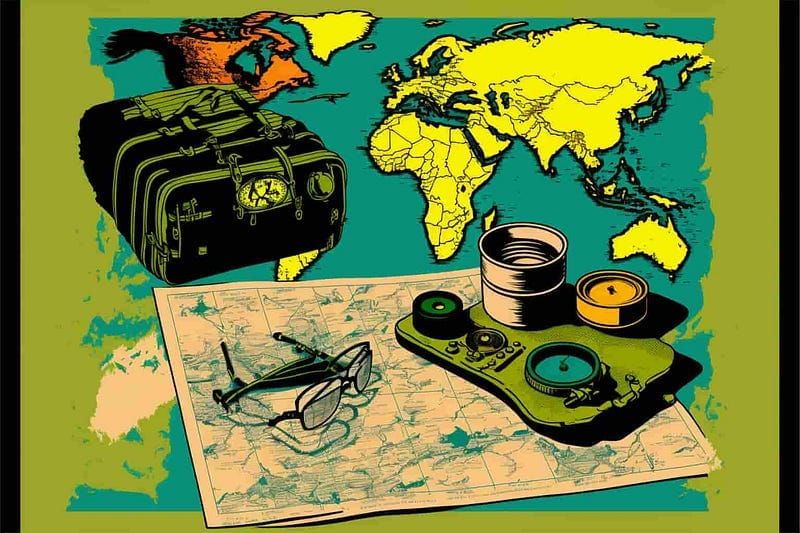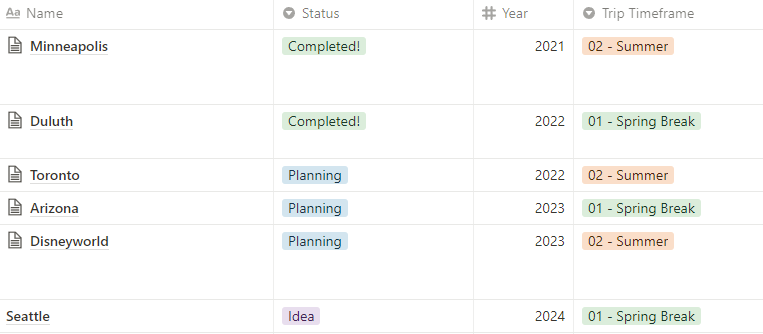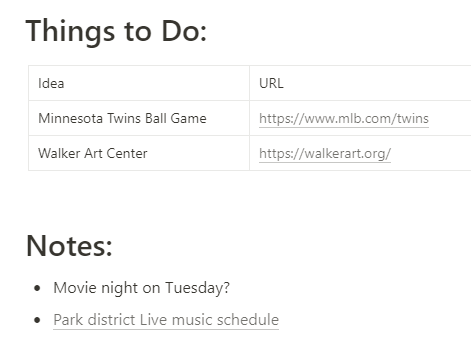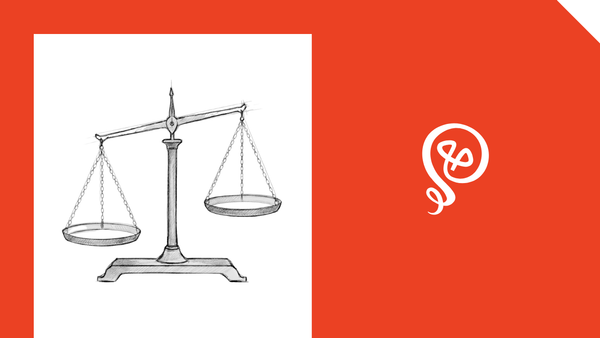Make Vacation Planning Easier with Notion
Traveling requires a lot of organization.

Of all the parenting advice on the internet, no one warned me exactly how much my future travel plans would revolve around the school year. And it didn’t really hit me until my oldest son was in kindergarten.
Our district — like many — has an entire week off for spring break, nearly two weeks off for Christmas, and closures for Parent-Teacher conferences and other holidays. As soon as the school calendar comes out, I immediately take note of all of the “No School” days so I can be prepared.
When my kids were younger, I put them in camps offered by the local park district on their days off so that I could keep working. But I realized quickly that my kids hated those camps. They were usually nothing more than a large gym full of basketballs and a table with coloring books in a corner.
Finally, I decided that we should take family trips during the longer breaks. I love to travel (and, frankly, didn’t do enough of it before having children). After all, my partner and I both had paid vacation time through our jobs. Studies have found that 55% of Americans don’t take all of their vacation time each year, and we fell into that category before we started planning family trips. In a way, it forced us to take breaks from work.
I read a quote once that parents never really get a vacation — they’re just taking care of their kids in another city. That’s certainly true. There’s food, lodging, travel logistics, entertainment… plus bringing “stuff” from home, like favorite blankets or toys.
Yet we now take two or three major trips per year, and, I have the planning down to a science. I’m the “family manager” so I use Notion to stay organized and keep track of the details. I’ve now planned so many trips that the process has become almost repeatable, even with a broad range of travel destinations.
Step 1: Make a list of vacation destinations
I have joked that I have planned trips until 2032… and it’s sort of true. My partner and I came up with a bucket list of places we’d like to visit, with more elaborate destinations planned as the kids get older.
In Notion, I’ve set up a list of all the places we’d like to visit, along with tentative timeframes (like “2024 Winter Break”). Right now, my kids are 12, 10, and 4, so I have to think about their ages when planning. I’ve picked “easier” trips for the past few years since my youngest doesn’t have the same stamina as her older siblings. I also know that she won’t remember the trips very well, so I’m saving the major destinations until she’s older.
I also plan based on climate. We live in the Midwest, so it makes sense to head somewhere warmer during our winter break.
My Notion table looks like this:

I can easily change trip information or travel timeframe. The pandemic thwarted our travel plans for 2020 and 2021, so I had to rethink our destinations.
But in addition to “needing something to do” during the school breaks, it is a family goal of ours to travel. By making a list of places we’d like to visit, we are taking a step toward turning that goal into reality.
Step 2: Decide on a budget for your vacation
I’m not extravagant when I plan our family trips but even so, traveling with five people isn’t cheap. I save year-round, adding money automatically to a savings account designated for travel expenses with every paycheck.
By having my trips planned out in Notion, I start to think about how much each trip would cost. That factors into my planning as well. Usually, one trip per year is our Really Big Trip that I know will be more expensive. The other trips will be in less expensive parts of the country or have other factors (like staying with family members that live in the area) that I know will reduce the costs.
I plan our budget in Google Sheets and link to the GSheet in my Notion table for the trip. The GSheet keeps track of anticipated costs for each part of the trip, so I can make sure it fits within our budget.

I also have a column for “Actual Expenses” and after the trip is completed, I fill this out. I try not to be overly rigid during the trip itself, but rather be mindful of how much we had planned to spend on different activities.
Lodging is usually the single largest expense, so it impacts how much money we have left to do other things. By keeping links to my past budgets in Notion, I can look back and see how much we ended up spending. Our budgeted amount for “Food,” for example, has continued to increase as the kids get older and eat more.
Step 3: Start collecting ideas for your trip
This is the fun part: the actual planning for the trip. Full disclosure: we are not spontaneous people. We always have specific activities in mind when we arrive at our destination.
But at the same time, we don’t try to cram too much into a single day. If we did, we’d end up with cranky kids. My general rule of thumb is one “big” activity per day. The rest of the time might be spent lounging around our Airbnb or going to a park… something low-key.
In Notion, I’ll start to collect ideas for the trip. These might come from Google searches, or recommendations from friends that live in the area. Each trip has its own page where I’ll add URLs and notes.

I’ll throw a lot of ideas onto this list. Then my partner and I pick from the ideas depending on the length of our stay, our budget, and the activities that we think will give us the most variety on our trip. We do a mix of the well-known sights in the area with some hidden gems, and alternate between indoor and outdoor plans.
I also keep a list of restaurants in the area — especially if they’re recommended. We try to keep our food costs down by buying groceries and eating some meals at our Airbnb, but we also like to make sure we hit the local food scene.
Having a list of potential activities is also helpful when we’re forced to change our plans. Sometimes the weather gets in the way of an outdoor venue, or tickets end up being sold out. When that happens, we can quickly shift gears and find something else to do.
Notion has worked so well for keeping track of our family vacations, but there are other note-taking tools, like Evernote, that would do the same thing. I like how easy it is in Notion to create tables and have linked notes. Evernote is similar but only has “one level” of nested notes: notes within notebooks. Notion is limitless: you can have embedded notes going multiple layers deep.
Optional: Create a detailed itinerary
It’s probably obvious at this point that I’m a planner. (😁) But, by doing a lot of prep work makes the actual vacation easier. By the time we hit the road, we know what to expect.
The last thing I do before we head out on our family adventure is create a detailed itinerary. And I mean detailed. It will look something like this:
- 8:30 am — 11:30 am: Drive from our house to Madison, WI
- 11:30 am — 12:30 am: Lunch in Madison
- 12:30 pm — 3:00 pm: Drive to Airbnb
- 3:00 pm — 5:00 pm: Arrive at Airbnb, unpack and relax
- 5:00 pm: Dinner at a local restaurant
Then I print out the itinerary and give it to each of my kids, on a clipboard.
I create the itinerary in Google Docs and link to it in Notion. I could do this as an embedded page in Notion, but I’ve found that a GDoc is easier to share with other people who may not be familiar with Notion (particularly those who struggle with unfamiliar tools).
This helps my kids know what to expect. After all, they’re away from home and away from their normal routine. They can look at the itinerary and see how long we’ll be in the car or when we’ll have a break in the day. If our plans change for some reason, my 10-year-old will update his printed itinerary with a pen.
I’m certain that over the years, our trips have run more smoothly because of the planning I do. Traveling with kids can be exhausting, but by staying organized I can focus less on the logistics and more on the time I’m spending with my family.
Download my free resource — Getting Started With Automation: A Guide for Solo Businesses — for more tips.





